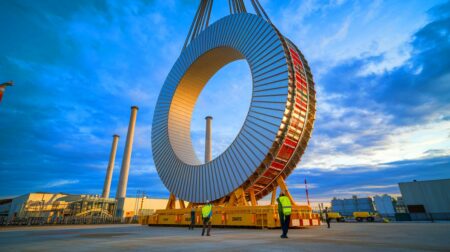Following years of drought, the water level in the Sea of Galilee – Lake Kinneret, to Israelis – dropped so low by September 2018 that an island emerged. The freshwater lake is threatened by increasing salinity as lake levels dropped near the modern benchmark, the so-called “black line” of 2001.
Further to the south, the historically imperiled Dead Sea keeps shrinking in a region where scientists describe water resources as among the most vulnerable on earth. The water drawdown affects Israel, the Palestinian Territories and Jordan; Amman is turning to a controversial plan to tap into the Red Sea for desalination and then return brine to the Dead Sea, raising questions about new impacts.
The United Nations Food and Agricultural Organization warned last year that competition for water resources, a tragically chronic problem in the Levant, will only intensify. Demand is rising and climate impacts stress millions already living on the edge of lakes and rivers with a precarious future.
That’s what’s made the work of EcoPeace Middle East so critically important. The nonprofit, with offices in Amman, Ramallah and Tel Aviv, seeks to protect water resources and secure a sustainable future in the Middle East. At the same time, they advance the cause of a peace that’s been so elusive.
They’ve received a few awards for that work, including Stanford Law School’s 2018 Bright Award. “When we started EcoPeace, we never imagined that we would be standing here at Stanford, talking about it 25 years later,” said Jordanian program director Munqeth Mehyar during last week’s ceremony.
Yet for years EcoPeace has mediated regional disputes over water resources. They’re working to restore the lower Jordan River and reduce pollution, while exploring ideas for Dead Sea restoration. They’ve built three EcoParks, including one at Ein Gedi that serves as an education center where visitors learn about green technologies such as solar cookers, grey water systems, mud buildings or compost systems.
Now EcoPeace is working on the Water-Energy Nexus Project. It envisions large-scale solar power generation hosted in Jordan, with Mediterranean Sea desalination facilities in Israel and Gaza for water.
The cooperative international vision – it expands on a landmark 2013 agreement for regional water use – also may include Lebanon. Israel and Jordan have already increased water resources because of spikes in demand tied to refugees from the conflict in Syria. Egypt, Iraq and the wider region remain a concern, as does the Palestinian state.
“Unlike with Jordan, Israel and the Palestinian Authority have failed to develop a mutually advantageous water security agenda,” Bromberg said in a 2017 report. “Water is managed in a competitive manner, ignoring changes in technology that have transformed water away from being a zero sum game.”
That international vision is why EcoPeace focuses on the cause of peace and environmental justice, even when the cause of cooperation is considered suspect by extremists on all political sides of the conflict.
“People need to understand that the water crisis that the region suffers is a national security crisis,” Bromberg said at Stanford, stressing the EcoPeace vision of water as a human right. “It’s way beyond the environment; it goes to the heart of survival in the region.”
EcoPeace is taking their vision global, with programs on conflict resolution tied to environmental peacebuilding designed as a model for other regions that face transboundary water resource issues.
“Water is a common denominator,” Mehyar said. “Water is life.”
Did you like it? 4.5/5 (27)









